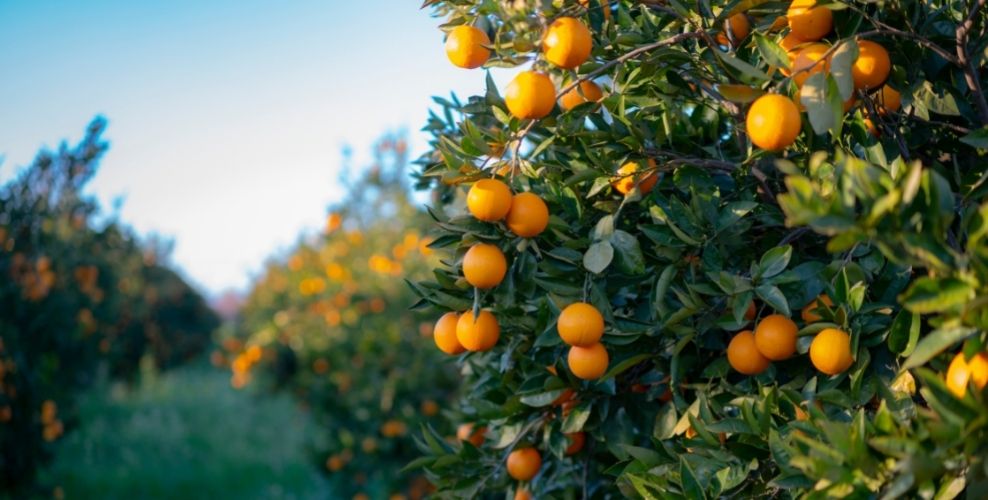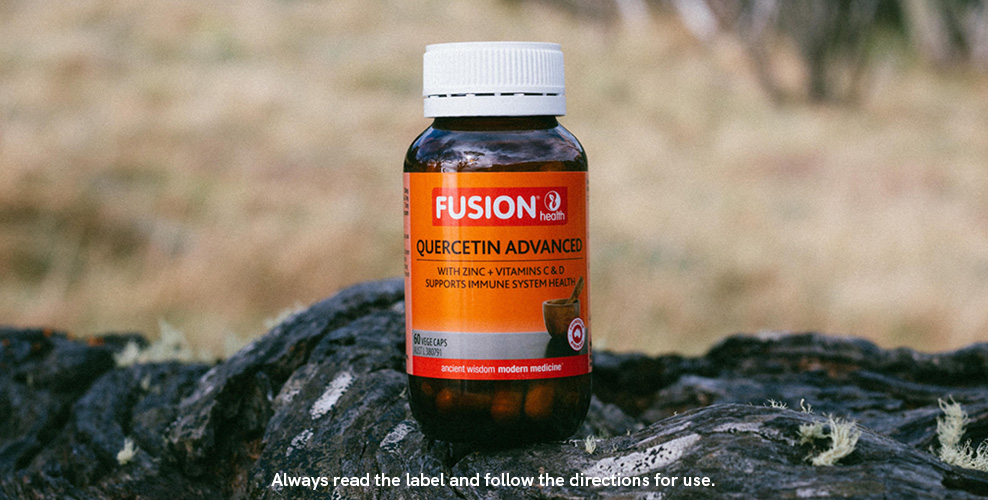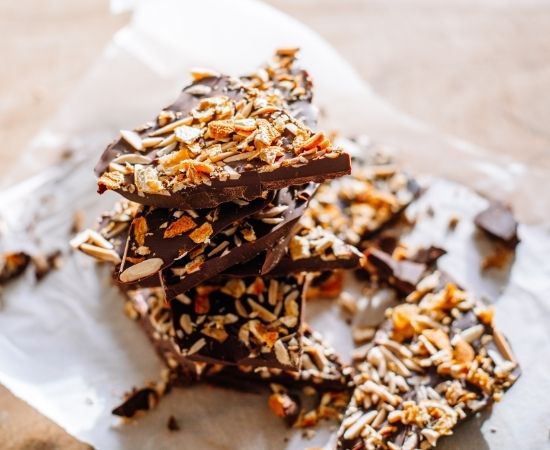Quercetin – why this nutrient is so popular
As much as we all love a new wonder herb, vitamin or superfood in health-conscious circles, sometimes the most amazing things are right in front of us in our everyday diets. The good news is that if you eat a whole food diet, full of fruits and vegetables, then you’re consuming quercetin (pronounced kwer-see-tin). Studies show the benefits of quercetin and the interest in its antioxidant activity, immune-supporting and mild-allergy relieving properties is on the increase [1-5]. So why is everyone talking about quercetin? Keep reading to find out how quercetin could benefit not only your immune health, but also reduce your mild allergy symptoms.

What is quercetin?
Quercetin is a pigment and polyphenol bioflavonoid (plant chemical) found abundantly in fruits, vegetables, tea and wine. It usually occurs alongside other antioxidant nutrients that act synergistically, meaning they cooperate and help to make each other more effective – don’t you just love how plants do that?! When it comes to ‘food as medicine’ quercetin really proves that having an abundance of plant foods in the diet is the best medicine.
History of quercetin
Who discovered quercetin? In 1938 the Hungarian Nobel prize winner Albert Szent-Gyorgyi made a doubly fascinating discovery – ascorbic acid (vitamin C) and quercetin. Interestingly, these two compounds go hand-in-hand where nature is concerned.[1]
Quercetin was originally dubbed ‘vitamin P’ but this name was soon dropped when it was discovered that quercetin wasn’t really a vitamin at all, it was a flavonoid. Flavonoids are plant compounds with a wide array of health benefits.[2]
Quercetin benefits
Quercetin is a bit of an ‘all-rounder’ when it comes to benefiting our bodies. That’s because it provides support in two very key areas – inflammation and free radical damage – by providing antioxidant and anti-inflammatory activities. Here’s how quercetin works in the body:
Anti-inflammatory action
Inflammation is such a big topic and can be confusing. It is a necessary part of the immune system’s normal response to injury and infection, but inflammation can also be detrimental to health when it occurs in excess due to lifestyle factors, such as stress, smoking, alcohol and high sugar diet, which increase free radicals in the body.
Quercetin helps reduce inflammation by preventing some of the major inflammatory cells from being produced in large amounts. Some studies, using cells and animals, have also shown that quercetin may even help to prevent these inflammatory cells from being produced at all.[3]
Antioxidant activity
Quercetin acts as an antioxidant by neutralising harmful free radical chemicals. Free radicals are produced in the body during normal cellular metabolism, and from excessive exposure to the sun, pollution and many chemicals in our environment, food, water and air. A balance between antioxidants and free radicals is vital for normal physiological function.
Relief from allergies and hayfever symptoms
If you’re an allergy sufferer you’re likely to be familiar with the word ‘histamine’. Histamine is released from inside certain cells known as mast cells; this is how an allergic reaction starts. Studies on quercetin have helped us to understand that quercetin relieves mild allergy symptoms by stabilising mast cells, and therefore reducing the release of histamine into the bloodstream.[4]
A study in mild allergies found that quercetin reduced Ig E, a protein that is used as a marker to measure levels of allergic conditions. The results concluded that quercetin helped to reduce the symptoms of mild allergies.[5]
If you struggle with allergies, sinusitis or hayfever check out some more tips on how to manage those irritating symptoms here.

Does quercetin support a healthy immune system?
Quercetin is nutrient that supports immunity too! As well as the famous trifecta of zinc, vitamin C and vitamin D, think of quercetin when you need immune support.
For more ways to support healthy immune system function, check out this blog post.
Recommended dosage of quercetin
It’s recommended to take from 250 mg and up to 750 mg per day of quercetin.[6]
Foods that contain quercetin
What natural foods contain quercetin? You may be surprised by the range of quercetin-rich foods that are found in a typical healthy diet filled with fruit and vegetables. Because quercetin is a plant pigment, think of consuming foods with rich colours and those you tend to eat with the skin on.
Include these high quercetin foods in your diet:
- Apples
- Tomatoes
- Onions
- Grapes
- Cherries
- Citrus fruits
- Leeks
- Shallots
- Berries
- Black and green tea
- Broccoli
- Herbs like parsley and sage
- Kale
- Garlic
- Red wine
- Rocket
- Green and red lettuces
Although quercetin is only found in small amounts in most foods, a varied diet abundant in plant-based foods can help to provide antioxidant activity, relieve mild allergy symptoms and support the immune system.

Who should not take quercetin?
While quercetin shouldn’t be avoided in food, higher supplemental doses may need to be avoided by some people.
Quercetin supplements can reduce the effectiveness of some types of medication, check with your health professional if you are taking other medications. If you are pregnant or breastfeeding, it’s also best to avoid taking quercetin supplements for the simple fact that not enough is known about taking it when pregnant or lactating.[7]
Quercetin products
With quercetin being such an all-rounder, it’s a great bedfellow to herbs and nutrients that relieve inflammation, plus other antioxidants and immune-supporting nutrients.
To support immunity, quercetin plus vitamins C, D and zinc makes for a formidable team. Just like quercetin, vitamins C and D support healthy immune system function. The mineral zinc plus vitamins C and D also make a great addition for immune support as they help the immune system to fight illness.
Fusion Quercetin Advanced combines quercetin, plus vitamins C, D and zinc to support immune system health and function.

Always read the label and follow the directions for use.
What other nutrients or herbs can quercetin be combined with?
For inflammation, consider curcumin, the compound derived from turmeric makes the perfect anti-inflammatory duo with quercetin. Find curcumin alongside boswellia, ginger and black pepper in Fusion Curcumin Advanced.
To relieve symptoms of mild allergies, herbs like baical skullcap found in Fusion Allergy, traditionally used in Chinese medicine to relieve symptoms of mild allergies, including hayfever symptoms.
Antioxidant protection can also be found in vitamins A, C, E, zinc, selenium, lycopene or antioxidant-rich fruits and vegetables such as blueberries, blackcurrants, tomatoes, pink grapefruit, herbs and spices. For a high-strength blend of herbal antioxidants to pair with quercetin, try Fusion Revital 8 Antioxidant.
While you may not be familiar with the nutrient quercetin, it’s been the subject of research for decades, which have shown it has multiple benefits including antioxidant, anti-inflammatory and immune supporting actions plus relief for mild allergy symptoms.
References:
- Bors W, et al. Free Radical Biology and Medicine 1995;19(1):45-52.
- Linus Pauling Institute. Last updated February 2016, accessed February 2022 from https://lpi.oregonstate.edu/mic/dietary-factors/phytochemicals/flavonoids
- Li Y, et al. Nutrients 2016;8(3):167.
- Horowitz RJ. Integrative Medicine. 4th Ed. Elsevier, 2018.
- Jafarinia M, et al. Allergy, Asthma & Clinical Immunology 2020;26(36).
- Drugs.com. Last updated June 2021, accessed February 2022 from https://www.drugs.com/npp/quercetin.html
- RX List. Last updated November 2021, accessed February 2022 from https://www.rxlist.com/quercetin/supplements.htm



















